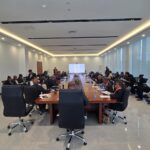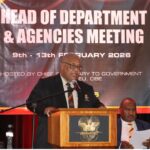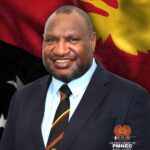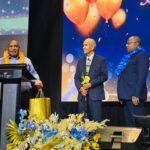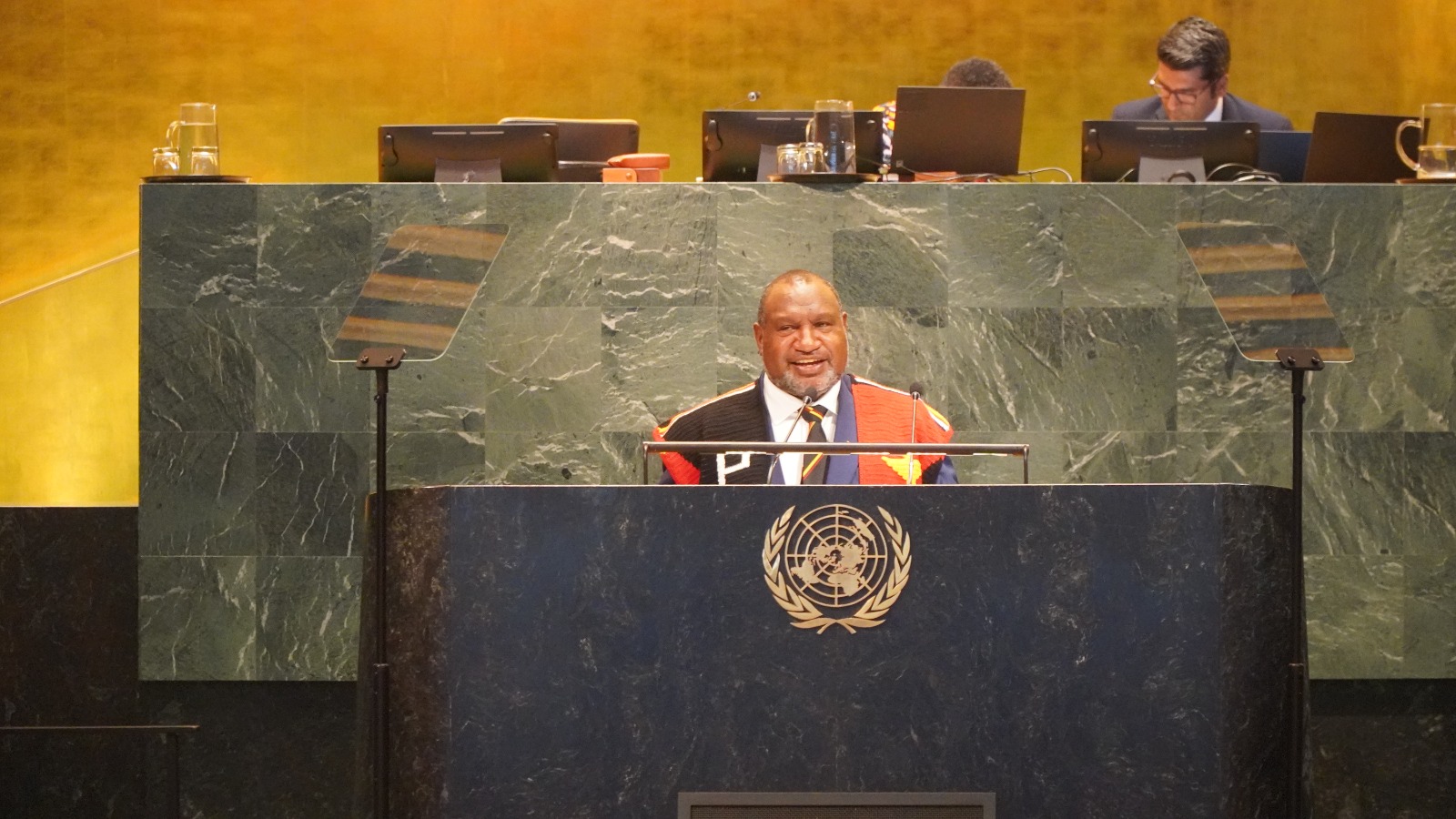Prime Minister Hon. James Marape has delivered a powerful address to the 80th United Nations General Assembly, celebrating Papua New Guinea’s 50 years of independence and UN membership, while urging the world to embrace peace and take urgent action on climate change.
Speaking before world leaders in New York, Prime Minister Marape began by congratulating the newly elected President of the UNGA and paying tribute to Almighty God for guiding Papua New Guinea since independence in 1975.
“Just a few days ago, we celebrated 50 years of our independence. And very soon, on the 10th of October, we will mark 50 years since we joined the United Nations,” he said. “Fifty years on, we have been proud participants in the UN family, standing firmly by the principles of the Charter.”
Unity Through Diversity
The Prime Minister reflected on Papua New Guinea’s unique Constitution, crafted by the nation’s founding fathers and mothers, which has kept the country united across its vast diversity of over 1,000 tribes, 850 languages, and 600 islands.
“Our Constitution safeguards human rights, affirms our Christian heritage, and protects freedom of religion,” he said. “Despite being a Christian country, we protect the freedom of worship of every kind. Papua New Guinea has one or two lessons to teach the world: living amidst diversity, coexisting and living in unity.”
PM Marape praised the role of churches and faith-based organisations in delivering education, health, and community services, which he said have been fundamental in keeping the nation together.
Peace Through Dialogue – A Lesson from Bougainville
Highlighting PNG’s own experience with conflict, the Prime Minister recounted the 14-year Bougainville crisis, which was peacefully resolved through the 2001 Bougainville Peace Agreement under UN oversight.
“Not a bullet has been fired since the agreement was signed,” he noted. “Bougainville reminds us that peace can be achieved. Peace can be found at the table of dialogue.”
He urged warring parties across the globe, including in the Middle East, to “give peace a go,” citing recent remarks by Israel’s Prime Minister that hostages must be released to create conditions for peace.
“As a friend of Israel, I want to say: come to the peace table. The world can learn from Papua New Guinea that peace, after conflict, is possible,” he stressed.
A Call for Climate Responsibility
Turning to global challenges, PM Marape warned of the climate crisis, stressing the critical role of PNG’s vast forests and oceans as global assets.
“Our tropical forests absorb carbon and produce oxygen. Our reefs and waters shelter 7 percent of the world’s biodiversity. Yet our planet is boiling. Unless you have a second planet to run off to, we must save this one,” he said.
He called on major industrial nations to cut emissions, reform global financial systems, and assist forest and ocean nations to preserve biodiversity.
“Papua New Guinea produces only 10 million metric tonnes of carbon a year, yet we absorb more than 100 million tonnes. Those producing excess carbon must assist us to preserve our forests,” he said, reiterating PNG’s commitment to join Brazil and other nations at COP30 in Brazil later this year.
Global Partnerships and the UN’s Relevance
The Prime Minister thanked Australia, bilateral and multilateral partners, investors, NGOs, and churches for their enduring support over 50 years. He reaffirmed PNG’s policy of trade over aid, as the country seeks to grow its economy and leave no citizen behind.
He also paid tribute to UN Secretary-General António Guterres, who visited PNG earlier this month, praising the nation’s leadership in climate and biodiversity, while acknowledging ongoing challenges in governance and development.
Closing his address, Marape reaffirmed the relevance of the UN in a divided world:
“Fifty years ago, we entered this Assembly as one of its youngest members. Today, we stand tall as a free and vibrant democracy. The United Nations remains the meeting place of humanity. Unity can be found in diversity. Peace is built through dialogue, not war. This one planet must be preserved for all generations.”


